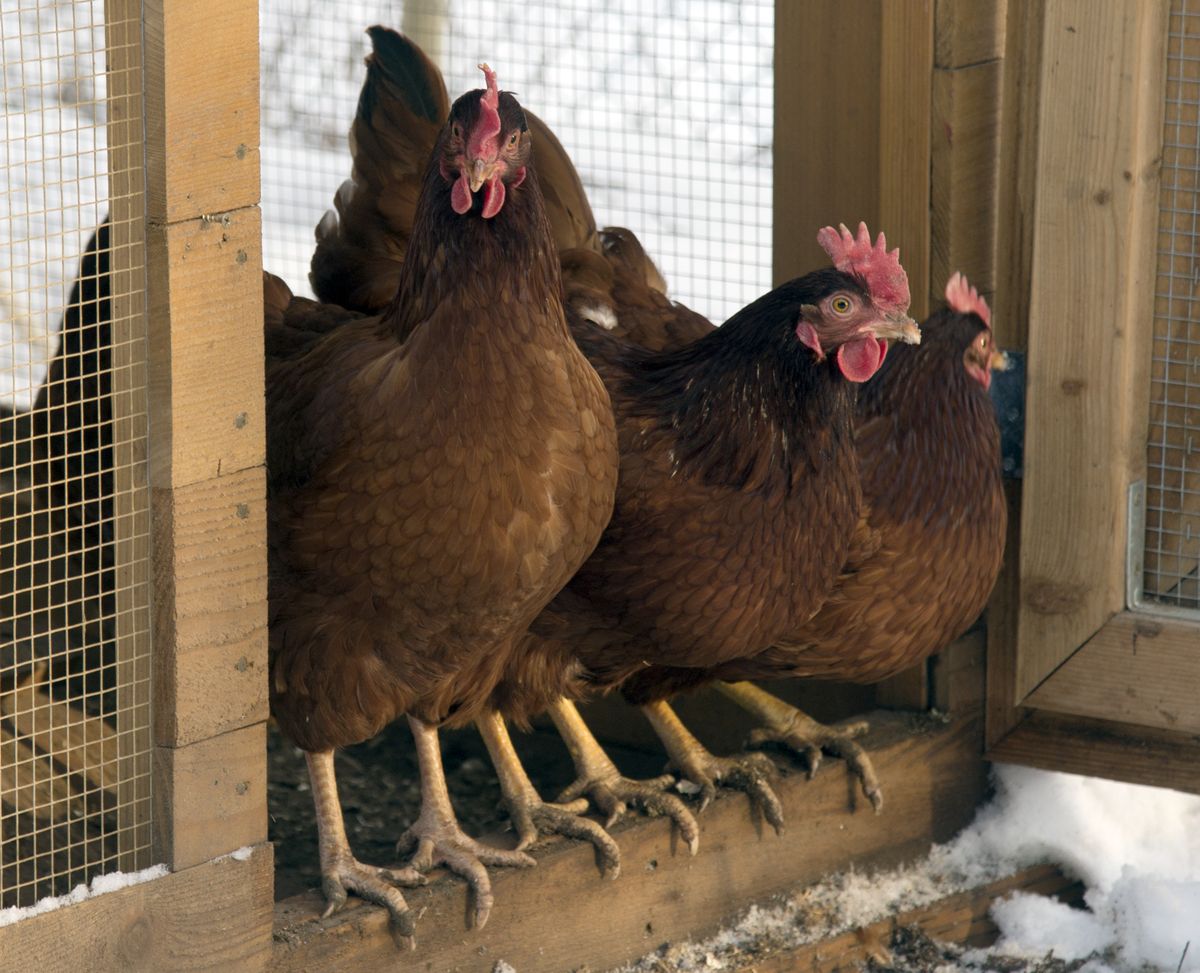Inland Northwest poultry producers urged to watch flocks for flu

State officials are urging backyard poultry producers to keep an eye on their flocks after a deadly avian influenza outbreak in the Tri-Cities area.
About 700 chickens, turkeys, ducks and guinea fowl in two backyard flocks were affected by the outbreak earlier this month. Some of the birds died from the fast-acting H5N2 avian influenza, which poses little risk to people but is highly contagious to domestic poultry. The remaining birds were destroyed to prevent the disease’s spread.
Contact with infected wild ducks is believed to have caused the outbreak.
“These avian influenzas are often lethal,” said Dorothy MacEachern, the Spokane Regional Health District’s epidemiologist. “They can easily be transmitted, particularly in free-ranging backyard flocks that aren’t protected from contact with wild birds.”
Scientists are trying to determine whether the Tri-Cities outbreak was caused by the same H5N2 virus responsible for a December outbreak in southwest British Columbia that led to nearly 250,000 chickens and turkeys being destroyed.
“Although it’s the same strain, we won’t know if it’s the same virus without genetic testing,” said Hector Castro, a spokesman for the Washington Department of Agriculture.
Within two days, avian flu had killed 50 to 60 birds in a large backyard flock in Benton County. A second backyard flock received ducks from the first operation before the infection was discovered, spreading the virus.
The disease is transmitted through contact with feces from infected birds.
“Waterfowl can be carriers and not get sick themselves,” Castro said. “Our concern is that this is one of the ways the virus is moving.”
Last week, federal researchers worked with hunters at the McNary National Wildlife Refuge east of the Tri-Cities to test ducks and geese for avian flu. Samples were taken from about 100 birds shot by hunters at the 15,000-acre refuge on the confluence of the Columbia and Snake rivers. It’s a major resting and feeding area for waterfowl migrating on the Pacific Flyway.
“We’re looking for unusual strains of avian influenza,” said Barb Bodenstein, a wildlife disease specialist with the U.S. Geological Survey, which sent the samples to a federal laboratory in Wisconsin for analysis.
Earlier testing of wild birds had focused on Western Washington, after a northern pintail duck in Whatcom County tested positive for H5N2 avian influenza in December. The H5N2 strain contains gene segments both from a deadly Eurasian avian flu and avian flu more typically found in North America.
The detection in the pintail duck was the first time the H5N2 strain had been discovered in Washington, and the Tri-Cities outbreak was the first detection in the state’s domestic poultry, Castro said.
The state Department of Agriculture acted quickly, ordering a quarantine of at least 240 days for a 20-mile zone around the Tri-Cities properties with the infected flocks. The quarantine prohibits the movement of eggs, poultry and other poultry products outside the zone.
Additional testing of domestic flocks will be conducted in that area. Meanwhile, a joint team of state and federal technicians worked to disinfect the two properties last week. Castro said that generally involves deep-cleaning equipment, but can also require taking down outbuildings.
The Canadian government also acted last week, banning imports of birds, raw poultry and poultry products from Washington and Oregon. In addition to the Tri-Cities outbreak, a different avian flu virus was discovered last month in a backyard flock in southern Oregon.
Officials said there is no immediate public health threat. Avian flu does not affect meat or eggs, which are safe to eat.
But concerns remain about wild birds spreading the virus. Given the popularity of backyard chickens, the recent outbreak is something that small producers and hobby farmers should be aware of, Castro said.
“People who have those birds really need to study up on the best practices for biosecurity. They need to make sure if there’s disease, they’re not spreading it to other flocks,” he said.
Besides preventing wild birds from having contact with their flocks, the Department of Agriculture recommends that poultry owners limit visits by outsiders to their chicken coops, or use a disinfectant on visitors’ boots, to reduce the risk of spreading infection.
Several poultry producers contacted by The Spokesman-Review said those measures are part of routine practices they undertake.
Tourmaline Farms in Deary, Idaho, sells chickens, eggs, dairy products and meat directly to consumers and several restaurants. The farm schedules tours so that customers can see its holistic management practices, said Pam Holloway, one of the owners. A “boot bath” is used to prevent the spread of disease, and the chickens’ diet is designed to boost their immune system, she said.
“Am I concerned about avian flu? Not really,” Holloway said last week. “We got hit with about 1 1/2 feet of snow during this outbreak, so my girls self-quarantined.”
The hens prefer their roomy indoor quarters this time of year, she said.
Susan and Paul Puhek are co-owners of S&P Homestead Farm in Otis Orchards. The couple gives talks on raising backyard chickens. Poultry health is one of the topics they emphasize.
In addition to vigilance by chicken owners in preventing and detecting disease, Susan Puhek would like to see local veterinarians develop a familiarity, or even specialty, in poultry.
“We raise chickens for the sale of eggs. It’s part of our living,” Puhek said. “When you’re selling eggs for $4.50 to $5 per dozen, there is a lot of money tied up in your laying hens.”